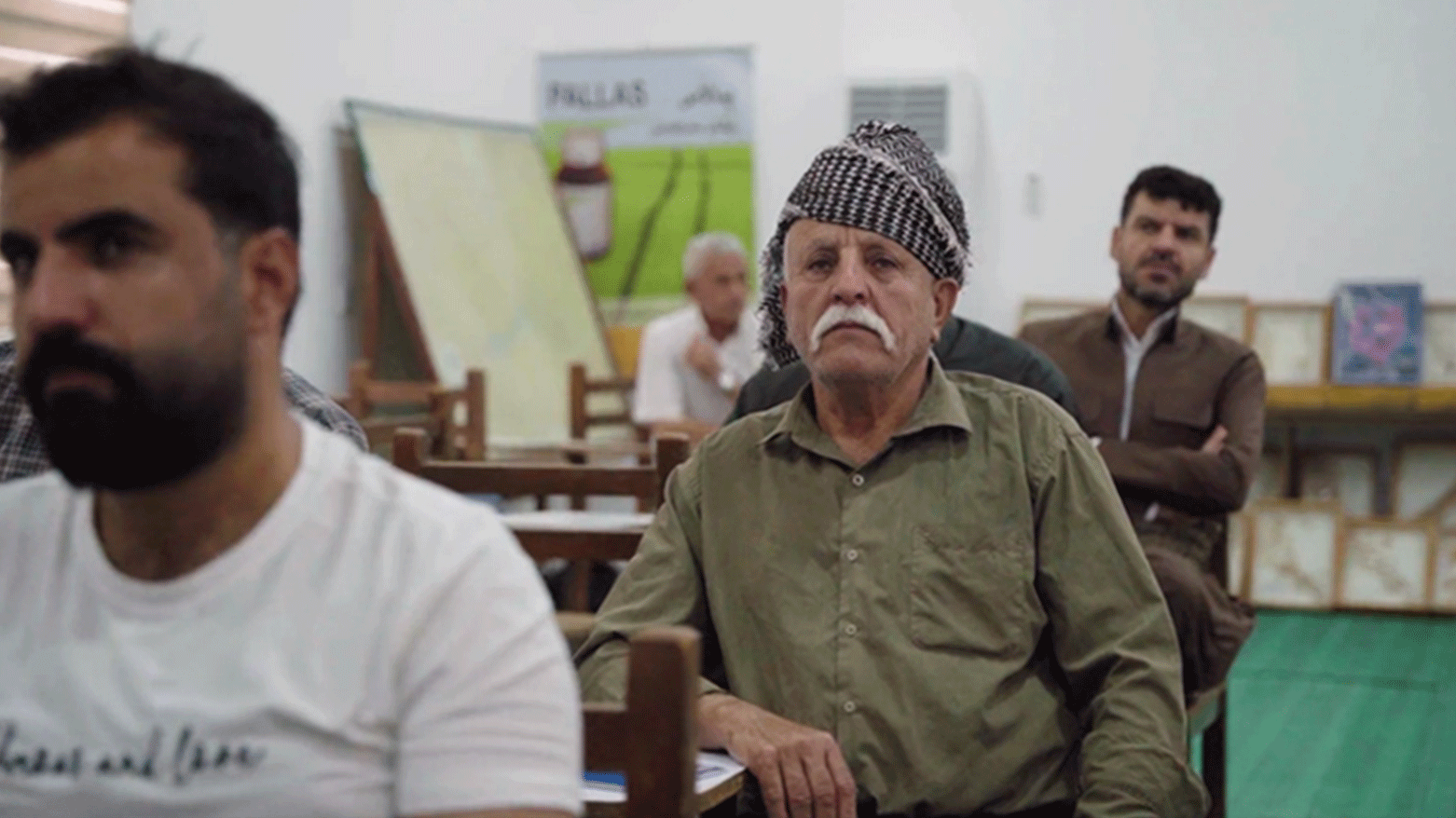Erbil General Director of agriculture opens training course for farmers

ERBIL (Kurdistan24) – Sayed Hemin Murad, General Director of agriculture in Erbil, announced on Monday that due to the impacts of climate change a new round of training has been designed for the farmers of Kurdistan Region.
“As a result of this, we deemed it necessary to organize a training session for the wheat farmers, using two percent of the wheat seeds. This marks the third round of training course from the planned five for the Erbil and its surrounding areas,” the director said.
Murad also explained that the first round of trainings was focused on plowing technique and planting, and the second round consisted of composting and raising awareness about the diseases that could impact wheat. “This, the third round, is about supplementary irrigation.”
“In the next week, we will hold another training course in Degala about the supplementary irrigation. We have divided the training into two groups, the first for the farmers in Qoshtapa, Shamamek, and Ankawa; they all will have to attend the training in Erbil. Farmers from Koya, Taq Taq, Degala, and Shaqlawa, which are around ninety in total, will attend the training course in Degala,” he noted.
Additionally, Murad stated that the general directory of agriculture continues to raise awareness about horticulture. “However, for this round of training, the main focus has been wheat farmers.”
The Kurdistan Agriculture Export Initiative, launched in 2022, is central to the Kurdistan Regional Government’s (KRG) progressive reform agenda to diversify the economy and boost the agricultural sector of the Kurdish region.
Under this initiative, for the first time in the Kurdistan Region’s history, pomegranates and potatoes were exported to Gulf markets, with future plans for figs, grapes, and apples to be exported as well.
